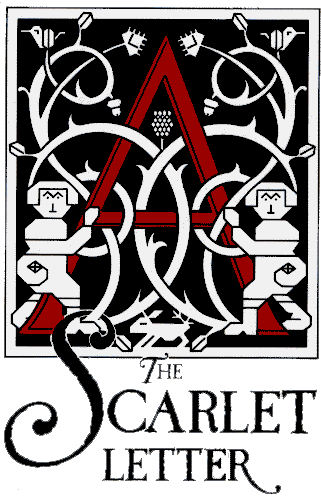君主论-the prince(英文版)-第15章
按键盘上方向键 ← 或 → 可快速上下翻页,按键盘上的 Enter 键可回到本书目录页,按键盘上方向键 ↑ 可回到本页顶部!
————未阅读完?加入书签已便下次继续阅读!
l tothe crime; because on account of it he has the people for an enemy; andthus cannot hope for any escape。Endless examples could be given on this subject; but I will be contentwith one; brought to pass within the memory of our fathers。 MesserAnnibale Bentivoglio; who was prince in Bologna (grandfather of thepresent Annibale); having been murdered by the Canneschi; who hadconspired against him; not one of his family survived but MesserGiovanni; who was in childhood: immediately after his assassination thepeople rose and murdered all the Canneschi。 This sprung from the populargoodwill which the house of Bentivoglio enjoyed in those days inBologna; which was so great that; although none remained there after thedeath of Annibale who were able to rule the state; the Bolognese; havinginformation that there was one of the Bentivoglio family in Florence;who up to that time had been considered the son of a blacksmith; sent toFlorence for him and gave him the government of their city; and it wasruled by him until Messer Giovanni came in due course to the government。For this reason I consider that a prince ought to reckon conspiracies oflittle account when his people hold him in esteem; but when it ishostile to him; and bears hatred towards him; he ought to feareverything and everybody。 And well…ordered states and wise princes havetaken every care not to drive the nobles to desperation; and to keep thepeople satisfied and contented; for this is one of the most importantobjects a prince can have。Among the best ordered and governed kingdoms of our times is France; andin it are found many good institutions on which depend the liberty andsecurity of the king; of these the first is the parliament and itsauthority; because he who founded the kingdom; knowing the ambition ofthe nobility and their boldness; considered that a bit in their mouthswould be necessary to hold them in; and; on the other side; knowing thehatred of the people; founded in fear; against the nobles; he wished toprotect them; yet he was not anxious for this to be the particular careof the king; therefore; to take away the reproach which he would beliable to from the nobles for favouring the people; and from the peoplefor favouring the nobles; he set up an arbiter; who should be one whocould beat down the great and favour the lesser without reproach to theking。 Neither could you have a better or a more prudent arrangement; ora greater source of security to the king and kingdom。 From this one candraw another important conclusion; that princes ought to leave affairsof reproach to the management of others; and keep those of grace intheir own hands。 And further; I consider that a prince ought to cherishthe nobles; but not so as to make himself hated by the people。It may appear; perhaps; to some who have examined the lives and deathsof the Roman emperors that many of them would be an example contrary tomy opinion; seeing that some of them lived nobly and showed greatqualities of soul; nevertheless they have lost their empire or have beenkilled by subjects who have conspired against them。 Wishing; therefore;to answer these objections; I will recall the characters of some of theemperors; and will show that the causes of their ruin were not differentto those alleged by me; at the same time I will only submit forconsideration those things that are noteworthy to him who studies theaffairs of those times。It seems to me sufficient to take all those emperors who succeeded tothe empire from Marcus the philosopher down to Maximinus; they wereMarcus and his son modus; Pertinax; Julian; Severus and his sonAntoninus Caracalla; Macrinus; Heliogabalus; Alexander; and Maximinus。There is first to note that; whereas in other principalities theambition of the nobles and the insolence of the people only have to becontended with; the Roman emperors had a third difficulty in having toput up with the cruelty and avarice of their soldiers; a matter so besetwith difficulties that it was the ruin of many; for it was a hard thingto give satisfaction both to soldiers and people; because the peopleloved peace; and for this reason they loved the unaspiring prince;whilst the soldiers loved the warlike prince who was bold; cruel; andrapacious; which qualities they were quite willing he should exerciseupon the people; so that they could get double pay and give vent totheir greed and cruelty。 Hence it arose that those emperors were alwaysoverthrown who; either by birth or training; had no great authority; andmost of them; especially those who came new to the principality;recognizing the difficulty of these two opposing humours; were inclinedto give satisfaction to the soldiers; caring little about injuring thepeople。 Which course was necessary; because; as princes cannot helpbeing hated by someone; they ought; in the first place; to avoid beinghated by every one; and when they cannot pass this; they ought toendeavour with the utmost diligence to avoid the hatred of the mostpowerful。 Therefore; those emperors who through inexperience had need ofspecial favour adhered more readily to the soldiers than to the people;a course which turned out advantageous to them or not; accordingly asthe prince knew how to maintain authority over them。From these causes it arose that Marcus 'Aurelius'; Pertinax; andAlexander; being all men of modest life; lovers of justice; enemies tocruelty; humane; and benignant; came to a sad end except Marcus; healone lived and died honoured; because he had succeeded to the throne byhereditary title; and owed nothing either to the soldiers or the people;and afterwards; being possessed of many virtues which made himrespected; he always kept both orders in their places whilst he lived;and was neither hated nor despised。But Pertinax was created emperor against the wishes of the soldiers;who; being accustomed to live licentiously under modus; could notendure the honest life to which Pertinax wished to reduce them; thus;having given cause for hatred; to which hatred there was added contemptfor his old age; he was overthrown at the very beginning of hisadministration。 And here it should be noted that hatred is acquired asmuch by good works as by bad ones; therefore; as I said before; a princewishing to keep his state is very often forced to do evil; for when thatbody is corrupt whom you think you have need of to maintain yourself ……it may be either the people or the soldiers or the nobles …… you have tosubmit to its humours and to gratify them; and then good works will doyou harm。But let us e to Alexander; who was a man of such great goodness; thatamong the other praises which are accorded him is this; that in thefourteen years he held the empire no one was ever put to death by himunjudged; nevertheless; being considered effeminate and a man whoallowed himself to be governed by his mother; he became despised; thearmy conspired against him; and murdered him。Turning now to the opposite characters of modus; Severus; AntoninusCaracalla; and Maximinus; you will find them all cruel and rapacious ……men who; to satisfy their soldiers; did not hesitate to mit everykind of iniquity against the people; and all; except Severus; came to abad end; but in Severus there was so much valour that; keeping thesoldiers friendly; although the people were oppressed by him; he reignedsuccessfully; for his valour made him so much admired in the sight ofthe soldiers and people that the latter were kept in a way astonishedand awed and the former respectful and satisfied。 And because theactions of this man; as a new prince; were great; I wish to show brieflythat he knew well how to counterfeit the fox and the lion; whichnatures; as I said above; it is necessary for a prince to imitate。Knowing the sloth of the Emperor Julian; he persuaded the army inSclavonia; of which he was captain; that it would be right to go to Romeand avenge the death of Pertinax; who had been killed by the praetoriansoldiers; and under this pretext; without appearing to aspire to thethrone; he moved the army on Rome; and reached Italy before it was knownthat he had started。 On his arrival at Rome; the Senate; through fear;elected him emperor and killed Julian。 After this there remained forSeverus; who wished to make himself master of the whole empire; twodifficulti





